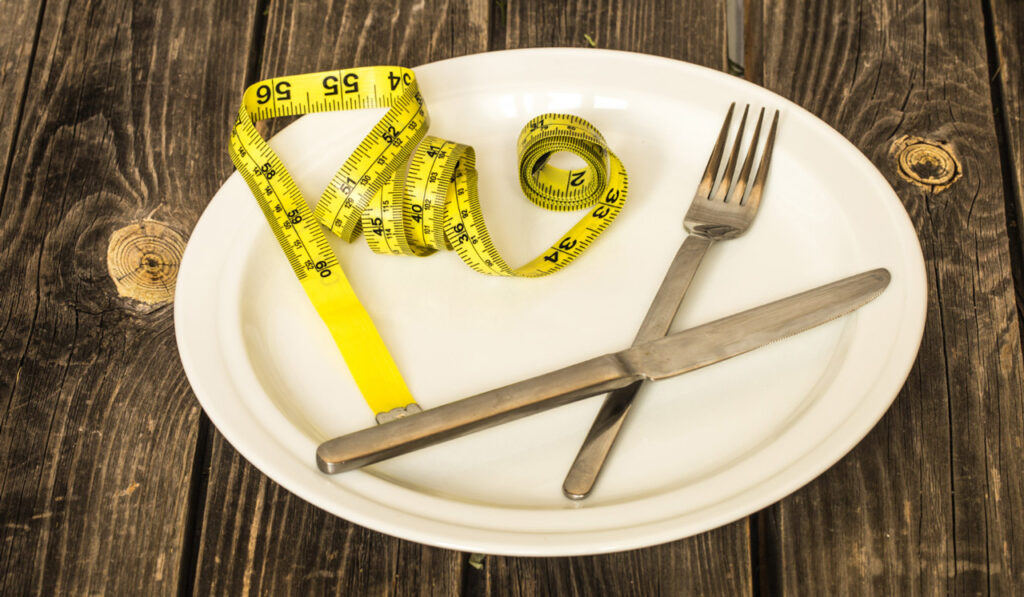Federated Health Charities’ mission is to improve the health and quality of life of all Ontarians by supporting 21 different health charities providing critical services to those experiencing, or affected by, illness. We believe education and prevention are key parts of supporting the health of our communities, so our weekly Health Hint series strives to provide tangible and easy to implement hints and tips on how to maintain your health, prevent disease, and enjoy increased quality of life. Check out our latest Health Hint on why extreme diets don’t work. We hope you find it helpful. If you would like to join our efforts to support the health of Ontario, please consider a donation to Federated Health Charities.
It’s that time of year, where people are setting resolutions for the new year, many of which involve health and fitness. There is nothing wrong at all with having a desire to improve yourself and setting goals to achieve that. In fact, it is admirable. Maybe you want to be stronger, lose weight, improve athletic performance, or feel better daily. Unfortunately, to achieve these types of goals, people often get lured into “quick fixes” or plans that tout grand (and unrealistic) promises. This is especially the case for weight loss.
Why Extreme Diets Don’t Work
The diet industry is a multi-billion-dollar industry because it is designed to keep people as repeat customers. It is not designed for you to have long-term success with your diet, but rather, for you to have to keep coming back and trying more and more diets. This is critical for people to understand, that diets are not designed to be effective in the long-term. People try diet after diet and beat themselves up when they fail, but it is not you that didn’t work, it is the diet that didn’t work. Because it is not intended to.
The reason that diets don’t work is because they are designed around extreme practices. Whether that be extremely low-calorie plans, restricting entire food groups, limiting all sweets or alcohol, or categorizing food as “good” or “bad”. These are all very drastic measures and are both unhealthy and unrealistic to stick to, in the long-term. When people commit to an extreme diet, they withstand it for a short period of time, possibly even see some result initially, but then they reach a point where they can no longer maintain the restrictive plan and they “fall-off the wagon” and usually gain all the weight back. It happens time and time again because it is the natural cycle of extreme diets.

Sustainability Over Speed
To achieve, and maintain, results you need to prioritize sustainability over speed. Extreme diets prioritize getting results quickly, even if they don’t last. Whereas if you prioritize sustainability then you are setting yourself up to have long-lasting results. For a diet to be sustainable, you need to be able to maintain over a long period of time. If you can’t go a long time without carbs, then going on a low carb diet is not sustainable for you. If you can’t live well on only 1200 calories per day, for the long-term, then that is not a sustainable diet for you. This rule applies to any diet you may be considering and is the question you need to ask yourself, “can I eat like this for a long time?”. If the answer is no, then it is not a sustainable diet and will set you up for the yo-yo dieting cycle. To see lasting results, you need to make small changes that you can easily maintain, with consistency. This may include reducing portion sizes rather than cutting out foods entirely, or increasing serving sizes of vegetables, or replacing your nightly bowl of chips with fruit. Prioritizing sustainability over speed might mean it takes a bit longer to see results and achieve your goal, but it means you will only have to do it the one time rather than re-starting repeatedly.

Consistency and Balance
The primary considerations to factor in when deciding what is a sustainable diet for you are consistency and balance. The absolute most important factor in the success of a diet is the consistency to which it is adhered to. If your diet is extreme and you can only stick to it a few days a week and then you fall off every weekend, then you are not being consistent and therefor it is not sustainable. But if you prioritize the small and sustainable lifestyle changes then you are far more likely to be consistent with them. The way to ensure you can be consistent and sustainable is to build a diet based around balance. A healthy diet is one that includes both nutritious foods and pleasure foods. A diet that prioritizes nutritious foods can still have room for pleasure foods (think sweets, alcohol, fried foods) so long as you strike a reasonable and consistent balance. A good rule of thumb is an 80:20 ratio. 80% of your foods are nutritious and 20% are pleasure. This means you can still enjoy the things you love, go out to eat, have cake at birthdays while still being consistent with your overall goals.
Balance leads to consistency and consistency leads to sustainability.
We hope you enjoyed our latest Health Hint!







